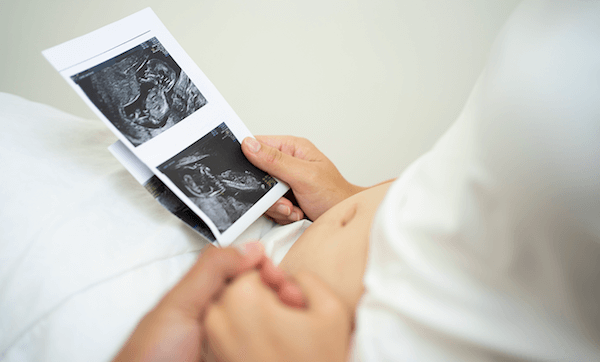Migraines During Pregnancy: Understanding and Managing the Pain

During pregnancy, experiencing various aches and pains is common due to the significant changes happening in your body. As your body adapts to support a growing baby, these discomforts are to be expected. However, some pains, like migraines, can be particularly challenging to handle, and for some women, pregnancy might trigger their first migraine.
Causes of Migraines During Pregnancy
The exact reason why some women experience migraines during pregnancy is not entirely clear. However, experts believe that fluctuating hormone levels, particularly estrogen, may play a significant role in triggering these severe headaches.
Migraines in the Third Trimester
Interestingly, about 50% of women who suffer from migraines find that these headaches decrease or disappear altogether in the third trimester. As pregnancy progresses, hormonal fluctuations tend to stabilize, potentially leading to fewer migraines.
Impact on the Baby
The good news is that migraines during pregnancy do not pose any known risk to the developing baby. This means that while migraines can be painful and disruptive for the mother, they are not harmful to the fetus.
Also read: How Does Hypothyroidism Affect Fertility And Pregnancy?
What is a Migraine?
A migraine is a severe headache that can be debilitating. It is often accompanied by symptoms such as:
- Nausea
- Vomiting
- Sensitivity to light (photophobia)
- Sensitivity to sound (phonophobia)
Migraines are distinct from other types of headaches, such as cluster headaches or tension headaches, and are triggered by various factors including:
- Stress and emotional disturbances
- Biological and hormonal changes
- Environmental factors
- Fatigue and exhaustion
- Bright or flickering lights
- Changes in weather and air pressure
- Certain foods
Managing Migraines During Pregnancy
Treating migraines during pregnancy can be tricky since many pain relievers are not safe for use. Here are some strategies and remedies that might help:
- Medication: Consult your doctor before taking any medication. While acetaminophen (Tylenol) is often considered safe after the first trimester, ibuprofen is generally discouraged.
- Non-Medical Remedies:
- Cold Packs: Applying a cold pack to the forehead can reduce pain and inflammation.
- Caffeine Intake: Moderate caffeine intake may help alleviate migraine symptoms, but it’s essential to keep it within safe limits.
- Darkening Lights: Resting in a dark, quiet room can help minimize light and sound sensitivity.
- Stress Relief: Practicing relaxation techniques such as deep breathing, yoga, or meditation can reduce stress, a common migraine trigger.
3. Hydration and Nutrition: Staying hydrated and eating small, frequent meals can help manage blood sugar levels and reduce the frequency of migraines.
When to See a Doctor
If you experience severe or persistent migraines during pregnancy, it’s crucial to speak with your healthcare provider. They can help determine the safest and most effective treatment options for you and ensure that your migraines are managed effectively without harming your baby.
Conclusion
Migraines during pregnancy can be challenging, but understanding their causes and managing them with safe remedies can help alleviate the discomfort. Always consult your healthcare provider before taking any medication or trying new treatments to ensure the safety of both you and your baby.
Also read: How Does Hypothyroidism Affect Fertility And Pregnancy?






